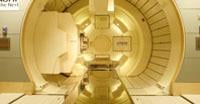
May 10, 2011 – Hitachi Ltd. announced it entered into an agreement to provide Mayo Clinic with its proton beam therapy (PBT) system. This next-generation technology has spot scanning capability for treating certain forms of cancer. The agreement includes PBT system maintenance for both facilities for 10 years following completion of the systems’ installation.
Hitachi will provide the clinic with two sets of PBT systems. The systems will be installed at facilities in Rochester, N.Y., Minnesota and Phoenix. The new program will employ intensity modulated proton therapy — based on spot scanning — which is a more precise form of proton therapy treatment that allows greater control over radiation doses, shorter treatment times and fewer side effects. It is also believed to be more cost effective in selected patients.
At each facility, there will be four treatment rooms with the rotating gantry systems and one fixed beam room initially used for research and development. The PBT systems installed will be a compact design with a footprint that is approximately 40 percent smaller than that of the conventional system. Construction for both facilities is scheduled to commence later this year, and proton therapy patient treatment is expected to be offered in the summer of 2015 and spring 2016, respectively.
PBT is an advanced type of cancer radiotherapy. Protons, the atomic nucleus of hydrogen, are accelerated at high speed and its energy is concentrated on tumors. PBT improves the quality of life for cancer patients since patients experience no pain during treatment and the procedure has fewer impacts on bodily functions. In most cases, patients can continue with their normal daily activities while undergoing treatment.
Spot scanning technology became feasible by advancing the uniform quality beam extraction technology from the accelerator and beam control technology with high accuracy, which includes three primary benefits: more accurate irradiation, which can reduce the side effects to the healthy tissues surrounding the tumor compared with conventional double scattering irradiation; patient-specific collimators and boluses are not necessary; and proton beam usage factor is high, reducing unnecessary secondary radiation.
Since the 1990s, interest in proton beam therapy as a form of cancer treatment has been rapidly increasing in the United States. Given the growing demand for more advanced and less detrimental treatment modalities, interest in proton therapy is on the rise, with more and more hospitals and cancer treatment facilities venturing into this area. In December 2007, for the first time in the United States, Hitachi cleared the FDA premarket notification special 510(k) for spot scanning irradiation technology.
For more information: www.hitachi.com


 January 30, 2026
January 30, 2026 









